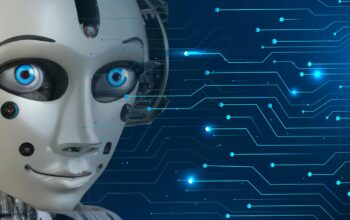
Highlights from ICML 2024
The International Conference on Machine Learning (ICML) 2024 showcased a wealth of innovative research and discussions, emphasizing the rapid evolution of machine learning applications. Key highlights included the AI for Math workshop, which featured pivotal talks and awarded notable papers, as well as extensive discussions on datasets for foundation models and machine learning applications in low-resource languages. With the conference wrapping up after a busy schedule, it is evident that the insights gained here will continue to shape the field of artificial intelligence.
AI for Math Workshop Overview
The AI for Math workshop at ICML 2024 was a significant event, featuring a range of presentations, panel discussions, and competitive tracks. One standout moment was the presentation of PutnamBench, a multilingual benchmark for mathematical theorem proving that won the best paper award. This benchmark is notable for its uniform difficulty and its basis in the prestigious Putnam Mathematical Competition, which has been identifying top mathematical talent since
1938. Engaging around 184 participants and generating 1, 495 submissions across various challenge tracks, this workshop highlighted the increasing interest and investment in AI applications for mathematics.

Noteworthy Talks and Presentations
Prominent speakers at ICML 2024 included Lucas Beyer, who discussed the critical role of datasets in the development of foundation models, and Chelsea Finn, who explored the intersection of robotics and machine learning. Beyer emphasized how modern models like OpenAI’s CLIP can classify images based on natural language descriptions, showcasing an approach that leverages language as a universal API. This aligns with recent findings indicating that models trained on diverse, global datasets perform significantly better in various tasks compared to those trained solely on English-centric data.
Engaging Workshop Sessions
The workshops were well-attended, with some sessions reaching capacity. For instance, the Mechanistic Interpretability workshop saw such high demand that entry was restricted at times. The enthusiastic participation underscores the community’s commitment to exploring cutting-edge topics such as generative modeling and time series analysis. The AI for Math workshop also featured a panel discussion where experts deliberated on the potential for AI systems to achieve superhuman mathematical reasoning, with most panelists predicting that this could happen as early as 2025, following recent advancements showcased by Google DeepMind.
Poster Sessions and Networking Opportunities
Poster sessions were another highlight, with researchers presenting their latest findings in a dynamic environment. For example, the poster titled “Code Agents are SOTA Software Testers” introduced SWT-Bench, a new benchmark for evaluating software testing capabilities. The collaborative nature of these sessions allowed for meaningful exchanges among attendees, further fostering a sense of community within the AI research space. Additionally, informal meetups, happy hours, and dinners provided attendees with opportunities to network and share ideas, enriching the overall conference experience.

Conclusion and Future Directions
As ICML 2024 concluded, it left participants with a sense of anticipation for future developments in machine learning and AI. The discussions surrounding low-resource languages and the importance of data diversity highlight ongoing challenges that researchers are eager to tackle. Moving forward, the insights gained from this conference will undoubtedly influence both theoretical advancements and practical applications in AI, setting the stage for continued innovation in the field. As we look ahead, the collaboration among researchers and the exploration of new methodologies will be crucial in shaping the next phase of machine learning research.



